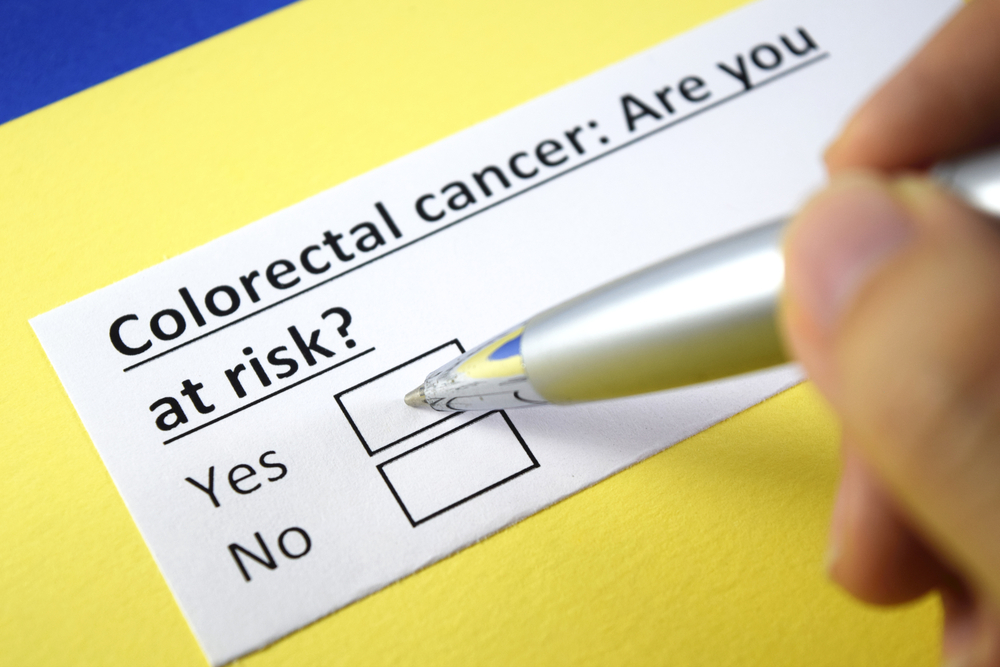By
Boy ‘Fighting for His Life’ After Being Injured as Drones Fell from the Sky During Florida Holiday Show
https://ift.tt/CDtVzYl
Colorectal cancer has long been associated with older adults, a disease that seemed far removed from the lives of young people. But a startling trend is emerging: an increasing number of individuals in their 20s, 30s, and 40s are being diagnosed with this once-rare condition among younger age groups. What’s behind this unsettling rise? Is it lifestyle, genetics, or something entirely unexpected?
As scientists race to uncover the causes, young patients are grappling with late-stage diagnoses and the life-altering consequences of a disease they never thought they’d face. With symptoms often dismissed or misdiagnosed, and preventative screenings typically recommended for older adults, the question becomes even more pressing: why is colon cancer becoming a growing threat to younger generations?
Rising Trends and Alarming Statistics
Colorectal cancer, once predominantly associated with older populations, is now on the rise among young adults in alarming numbers. Globally, the data reveals a steady increase in early-onset colorectal cancer cases, with some regions reporting dramatic spikes over the past few decades. These trends have left health experts puzzled, spurring a wave of research into potential causes and risk factors.
A comprehensive study published in The Lancet Oncology highlights a concerning 3.6% annual increase in bowel cancer cases among individuals aged 25 to 49 in England over the past decade. This rate is one of the highest reported in Europe. Similarly, research analyzing data from 50 countries found rising colorectal cancer rates among younger adults in 27 nations, including high-income countries like the United States, Australia, and Canada. These findings underscore the global nature of the issue.
In the United States, the American Cancer Society (ACS) has noted that the percentage of colorectal cancer diagnoses in individuals under 55 has nearly doubled, jumping from 11% in 1995 to 20% in 2019. The ACS projects that in 2024, nearly 19,550 colorectal cancer cases will occur in individuals under 50, with 3,750 related deaths. These statistics place colorectal cancer as the second leading cause of cancer-related deaths for women under 50 and the first for men in the same age group.
While colorectal cancer is rising across all demographic groups, certain populations are more affected. In the U.S., Black men and women have historically had higher incidence and mortality rates, prompting earlier screening recommendations for these groups. However, White individuals, particularly in rural or underserved areas, are now experiencing one of the sharpest increases.
Globally, the trends reflect similar disparities. For instance, higher rates are reported in countries undergoing rapid lifestyle changes, such as increased consumption of processed foods and sedentary behaviors. Regions with rising obesity rates and limited access to preventative healthcare services are also seeing significant spikes in cases.
Most young adults diagnosed with colorectal cancer are found in advanced stages—Stage III or IV—when treatment becomes more complex. This is largely due to a lack of routine screenings for individuals under 45, as well as symptoms that are often dismissed as benign conditions like hemorrhoids or irritable bowel syndrome (IBS).
Dr. Vikram Reddy, a colorectal surgeon, emphasized, “If anyone has any change in their bowel habits, if they have any bleeding—even if they think it’s a hemorrhoid, and it doesn’t go away—just get a colonoscopy.”
These alarming statistics signal the need for greater awareness and earlier interventions. The U.S. Preventive Services Task Force recently revised its colorectal cancer screening guidelines, lowering the recommended age from 50 to 45 for average-risk adults. This change is an acknowledgment of the shifting demographic profile of the disease.
As Dr. Phil Daschner from the National Cancer Institute remarked, “We don’t understand a lot about the causes, the biology, or how to prevent early onset of the disease. And that’s important to learn more about because it may affect [approaches for] the treatment and survivorship of early-onset colon cancer.”

Potential Causes
The increasing incidence of colorectal cancer among young adults has prompted extensive research into potential causes. Several factors have been identified as possible contributors:
Diet and Lifestyle:
A significant shift towards Western dietary patterns, characterized by high consumption of red and processed meats, low fiber intake, and increased reliance on ultra-processed foods, is believed to play a crucial role. These dietary habits can lead to obesity and metabolic disturbances, both known risk factors for colorectal cancer. A recent study linked seed oils like sunflower, canola, and corn to increased colon cancer risk among young Americans, suggesting that certain cooking oils may promote inflammation and tumor growth.
Obesity and Sedentary Behavior:
The rise in obesity rates parallels the increase in early-onset colorectal cancer. Excess body weight and physical inactivity are associated with chronic inflammation and insulin resistance, creating an environment conducive to cancer development. Experts believe that poor diet, more ultra-processed foods, obesity, and a lack of exercise are playing a role in rising bowel cancer rates among the young.
Gut Microbiome Alterations:
Dietary changes and antibiotic use can disrupt the gut microbiome, leading to dysbiosis. Such imbalances may promote inflammation and carcinogenesis in the colon. Studies have shown that diet, obesity, exercise, and some drugs (such as antibiotics) can all change the number and types of bacteria in our guts.
Environmental Exposures:
Increased exposure to environmental pollutants, including microplastics and endocrine-disrupting chemicals found in everyday products, has been suggested as a potential factor. These substances may interfere with hormonal and metabolic pathways, contributing to cancer risk. Researchers are exploring factors such as diet, obesity, lack of exercise, tobacco and alcohol use as well as environmental impacts such as exposure to chemicals.
Genetic Predisposition:
While hereditary factors account for a minority of cases, genetic predisposition combined with environmental influences may increase susceptibility in younger individuals. The majority of CRC in young adults is sporadic, and is likely due to behavioral and environmental causes; however, the exact etiology still remains unclear.
Challenges in Early Detection
Detecting colorectal cancer in its early stages among young adults presents significant challenges, often leading to delayed diagnoses and poorer outcomes. A study presented at the American College of Surgeons Clinical Congress 2024 found that younger adults are frequently diagnosed at later stages and with more aggressive tumor types.
One major obstacle is the tendency to overlook or misattribute symptoms. Common indicators such as persistent changes in bowel habits, blood in the stool, and abdominal pain are often dismissed as less serious gastrointestinal issues. This oversight can result in significant diagnostic delays. For instance, a report highlighted that younger individuals typically endure multiple consultations over extended periods—up to five years—before receiving a diagnosis, often at more advanced and less treatable stages.
Additionally, current screening guidelines may not adequately address the risk in younger populations. While organizations like the American Cancer Society have lowered the recommended screening age to 45, many young adults remain unaware of this change or lack access to appropriate screening methods. A study by the American Cancer Society found that colorectal cancer screening rates in newly eligible adults aged 45 to 49 are low, with stool tests especially underutilized.

Symptoms of colorectal cancer
Recognizing the symptoms of colorectal cancer is crucial, especially as incidence rates rise among young adults. Early detection significantly improves treatment outcomes. Key symptoms to be vigilant about include:
- Rectal Bleeding: Noticing blood in your stool or on toilet paper can be an early indicator. A study highlighted that nearly half of young bowel cancer patients reported this symptom.
- Abdominal Pain: Persistent discomfort or pain in the abdomen, particularly in the lower right area, should not be ignored. For instance, a 34-year-old man with incurable bowel cancer shared that he initially dismissed a dull ache in his lower right abdomen, which was an early symptom of his condition.
- Altered Bowel Habits: Significant changes, such as prolonged constipation, diarrhea, or very thin stools, may signal potential cancer. These alterations in bowel habits were noted as common symptoms among young adults with colorectal cancer.
- Unexplained Weight Loss and Fatigue: Losing weight without trying or experiencing extreme tiredness can be associated with colorectal cancer. These symptoms often accompany other signs like changes in bowel habits or abdominal pain.
It’s important to note that many younger patients may not exhibit symptoms and can appear otherwise healthy, making early detection challenging. However, if any of these symptoms persist for several weeks, it’s imperative to consult a healthcare professional promptly. Early screening and vigilance are key to improving outcomes, especially given the rising incidence of colorectal cancer among individuals under 50.
Prevention and Risk Reduction
Preventing colorectal cancer involves adopting a healthy lifestyle and being proactive about screening. Here are key strategies to reduce your risk:
1. Maintain a Healthy Weight
Obesity, particularly excess abdominal fat, is linked to an increased risk of colorectal cancer. Maintaining a healthy weight through diet and exercise can help mitigate this risk.
2. Engage in Regular Physical Activity
Regular exercise is associated with a reduced risk of colon cancer. Aim for at least 30 minutes of moderate-intensity activity most days of the week.
3. Adopt a Fiber-Rich Diet
A diet high in fiber supports digestive health and reduces colorectal cancer risk. Incorporate whole grains, fruits, vegetables, and legumes into your meals.
4. Limit Red and Processed Meat Consumption
High intake of red and processed meats is linked to an increased risk of colorectal cancer. Limit red meat to no more than 18 ounces per week and avoid processed meats when possible.
5. Moderate Alcohol Consumption
Alcohol intake is associated with a higher risk of colorectal cancer. If you choose to drink, do so in moderation—up to one drink per day for women and two for men.
6. Avoid Tobacco Use
Smoking contributes to various cancers, including colorectal cancer. Quitting smoking can significantly reduce your cancer risk.
7. Participate in Regular Screenings
Early detection through screenings like colonoscopies can identify precancerous polyps and early-stage cancers. Guidelines recommend starting screenings at age 45, or earlier if you have a family history or other risk factors.
Raising Awareness, Taking Action
The alarming rise of colorectal cancer among young adults underscores the importance of awareness, early detection, and proactive prevention. This trend challenges long-held assumptions about the disease and highlights the need for a collective effort to address its causes, symptoms, and treatment options. By prioritizing healthy lifestyle choices, seeking timely medical advice, and advocating for comprehensive research, we can work toward reversing this troubling trend.
While colorectal cancer remains a formidable challenge, it is one that can be mitigated with informed action and vigilance. Whether by recognizing symptoms, understanding personal risk factors, or supporting public health initiatives, every step toward awareness brings us closer to combating this growing threat.
For many of us, cooking oil is an unassuming kitchen staple—a foundation for countless meals. But what if the very oils we rely on every day are quietly contributing to a growing health crisis? Recent research has uncovered a startling link between popular cooking oils and a dramatic rise in colon cancer cases, particularly among young people.
While the convenience and flavor of these oils have made them a mainstay in modern diets, scientists are now questioning their long-term impact on our health. Could the oils we trust be fueling more than just our recipes?
Sources:
- Colorectal cancer statistics, 2020. CA Cancer J Clin 2020; https://acsjournals.onlinelibrary.wiley.com/doi/10.3322/caac.21601
- Dietary intake of omega-6 and omega-3 fatty acids and risk of colorectal cancer in a prospective cohort of U.S. men and women. Cancer Epidemiol Biomarkers Prev 2009;18:516–25. https://aacrjournals.org/cebp/article/18/2/516/166742/Dietary-Intake-of-6-and-3-Fatty-Acids-and-Risk-of
news
via Government Slaves https://ift.tt/FWdJxtD
December 25, 2024 at 05:05AM
December 25, 2024 at 05:10AM
via The Mind Unleashed https://ift.tt/CDtVzYl
